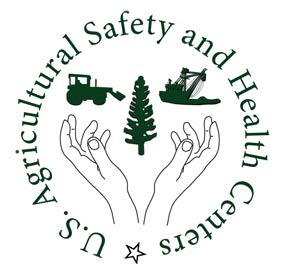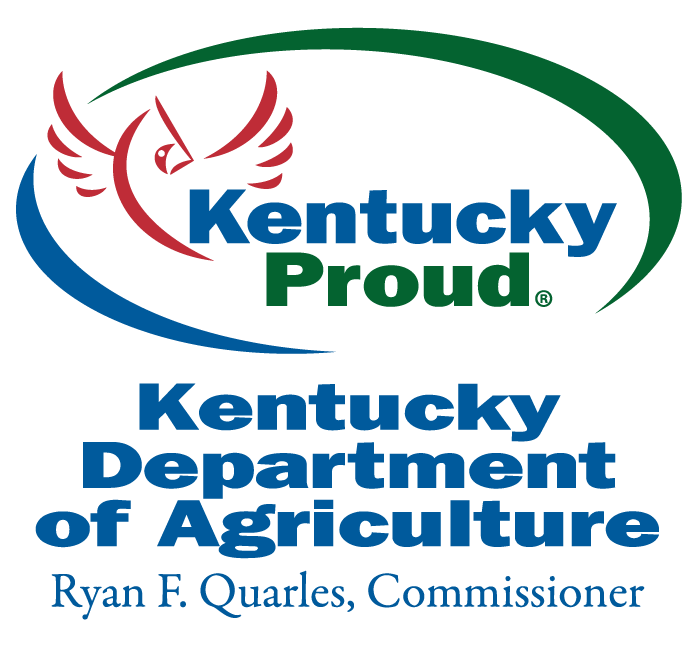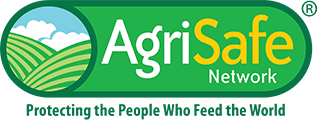Collaborative Partners
Association of University Programs in Occupational Health and Safety (AUPOHS)
 An award-winning on-the-farm safety program developed to reduce hazards and improve worker knowledge and practices.
An award-winning on-the-farm safety program developed to reduce hazards and improve worker knowledge and practices.
Kentucky Department of Agriculture
 A consumer protection and service agency that affects the lives of all Kentuckians every day. The Kentucky Department of Agriculture administers Kentucky Proud, the state's official farm marketing program.
A consumer protection and service agency that affects the lives of all Kentuckians every day. The Kentucky Department of Agriculture administers Kentucky Proud, the state's official farm marketing program.
AgrAbility
The vision of AgrAbility is to enhance quality of life for farmers, ranchers, and other agricultural workers with disabilities. While the term "disability" often brings to mind conditions such as spinal cord injuries and amputations, AgrAbility addresses not only these but also many other conditions, such as arthritis, back impairments, and behavioral health issues.
Multi Center Collaboration – Evaluators/Coordinators/Outreach (ECO) Group
An ongoing multi-center collaborative outreach strategy was developed between SCAHIP and the ECO Group comprised of representation from the 11 US Ag Centers and Conceptual Arts, Inc., (Gainesville, FL) on expansion of the National Agricultural Safety Database (www.nasdonline.org) as a premier online source for stakeholder access to resources and tools identified, developed, and evaluated by the NIOSH Agricultural Centers. The program with its strong ties to the University of Kentucky’s instructional design program is using state-of-the-art technology to package, market, and distribute field-tested agricultural occupational safety and health materials and tools.
Stakeholder Outreach
In addition to the specific Center Outreach work with the ECO group and Center faculty, Drs. Reed, Swanberg and Mazur and their programs engaged in numerous outreach activities and distribution of materials to stakeholders as part of their funded research, intervention and educational program. In 2014-15, presentations have reached 764 stakeholders and 1,013 safety materials have been distributed as part of these presentations and events.
Regional Outreach to Women and Minority Small Farmers
Dr. Mazur and outreach staff efforts to foster outreach with under-represented groups was successful during the reporting period. A collaboration with Georgia Women in Agriculture (GWIAA) was developed and shows great potential for future outreach and research collaborations. Dr. Mazur became a collaborator on the “Safe Children on Georgia Farms: A Statewide NAGCAT Training Program through the Georgia Women in Agriculture Association (GWIAA) grant. Dr. Mazur in collaboration with the National Children’s Center will work to ‘grow’ regional Child Safety initiatives with links to various regional Agricultural Centers. Four workshops with follow ups began in March, 2015 (N=30). This work also included a one-day workshop for graduate students from the Emory University College of Public Health Rural Occupational Health Course (with Dr. Judith Wold) participating in a Migrant Outreach Health Clinic in Moutrie, GA (N=20).
TSI: Tractor Safety Initiative: Costs of Tractor Operator Injuries from Overturns and Highway Collisions (follow up) and ongoing, related activities focused on at-risk and high-risk regional populations
In 2004, the NIOSH Agricultural Safety and Health Centers launched an initiative to conduct research on the consequences of and approaches to control agricultural tractor-related injuries. The most significant cause of fatal injuries is tractor overturns (Hard, et al, 2001). An effective intervention to control these injuries is equipping tractors with rollover protective structures (ROPS) and seatbelts (Swenson, 2004). Estimates of the costs of fatal overturns of non-ROPS tractors exist but are limited. Much less is known about the frequency, severity, and costs of nonfatal injuries that result from these events. This project combined operator fatal and nonfatal injury outcome data from a large population-based random sample of Kentucky farms with farm tractor-related injury data from two large U.S. worker compensation databases, three large national random sample USDA/NIOSH farm tractor surveys, public roadway farm machinery crash data from North Carolina, and worker compensation data from Finland. The two key aims of this study were as follows: 1) Determine the prevalence and costs of farm tractor overturn and roadway collision injuries and identify how these costs are distributed (who pays these costs). 2) Use recently collected data from four population-based sources to estimate the frequency and severity of tractor overturn injuries and calculate the cost of these events and the losses averted by retrofitting unguarded agricultural tractors with ROPS or replacing them with ROPS-equipped tractors. Researchers from the University of Kentucky, Colorado State University, University of Iowa, North Carolina State University, University of California (Davis), and NIOSH Morgantown, Division of Safety Research worked on 12 projects related to these aims. The results of this effort and similar studies are necessary for calculating the cost-effectiveness of educational, incentive, policy, and legislative intervention programs designed to retrofit non-ROPS tractors with ROPS and seatbelts or replace them with ROPS-equipped tractors.
University of Kentucky Cooperative Extension Services
The Kentucky Cooperative Extension Service (CES) is the most comprehensive outreach and engagement program at UK. Its mission is to improve quality of life for Kentucky citizens through research-based education. As part of a national extension system initiated in federal legislation in 1862 and formalized in 1914, CES functions in cooperation with its federal partner, the U.S. Department of Agriculture’s National Institute of Food and Agriculture and a network of more than 100 land-grant colleges and universities across the country. Kentucky CES infrastructure includes an office in every county in Kentucky as well as a state support structure which includes staff trained to be responsive to community-based issue planning and implementation through subject matter expertise and community understanding. Four major CES program areas and agent areas of expertise include Agriculture and Natural Resources, Family and Consumer Sciences, 4-H / Youth Development, and Community and Economic Development. The SCAHIP partners with Cooperative Extension Services to conduct local agricultural health and safety needs assessments and to deliver programming, training as well as outreach based upon findings.

Department for Behavioral Health, Developmental and Intellectual Disabilities
DBHDID provides leadership to prevent disability, build resilience in individuals and their communities and facilitate recovery for people affected by mental illness, substance abuse or intellectual or developmental disability. The Center has worked with DBHDID on the Kentucky Rural Mental Health and Suicide Prevention Pilot Program under Kentucky legislative appropriations 1 & 2.

Agrisafe
The AgriSafe Network, a non-profit organization, represents health professionals and educators who strive to reduce health disparities found among the agricultural community. We believe agricultural injuries, diseases, and fatalities can be prevented through the effective delivery of agricultural occupational health services. The Center has worked with Agrisafe in its farmer mental health and suicide prevention efforts; funding for the Agricultural Community QPR program was provided by Agrisafe as part of the South-Farm & Ranch Stress Assistance Network program from USDA.

Virginia Tech Transportation Insitute
The Virginia Tech Transportation Institute (VTTI) conducts research to save lives, time, and money and protect the environment. As one of six premier research institutes created by Virginia Tech to answer national challenges, VTTI is continually advancing transportation through innovation and has affected public policy on national and international levels. The SCAHIP has partnered with VTTI to co-sponsor an August 2022 Regional Agricultural and Logging Roadway Safety Symposium.

